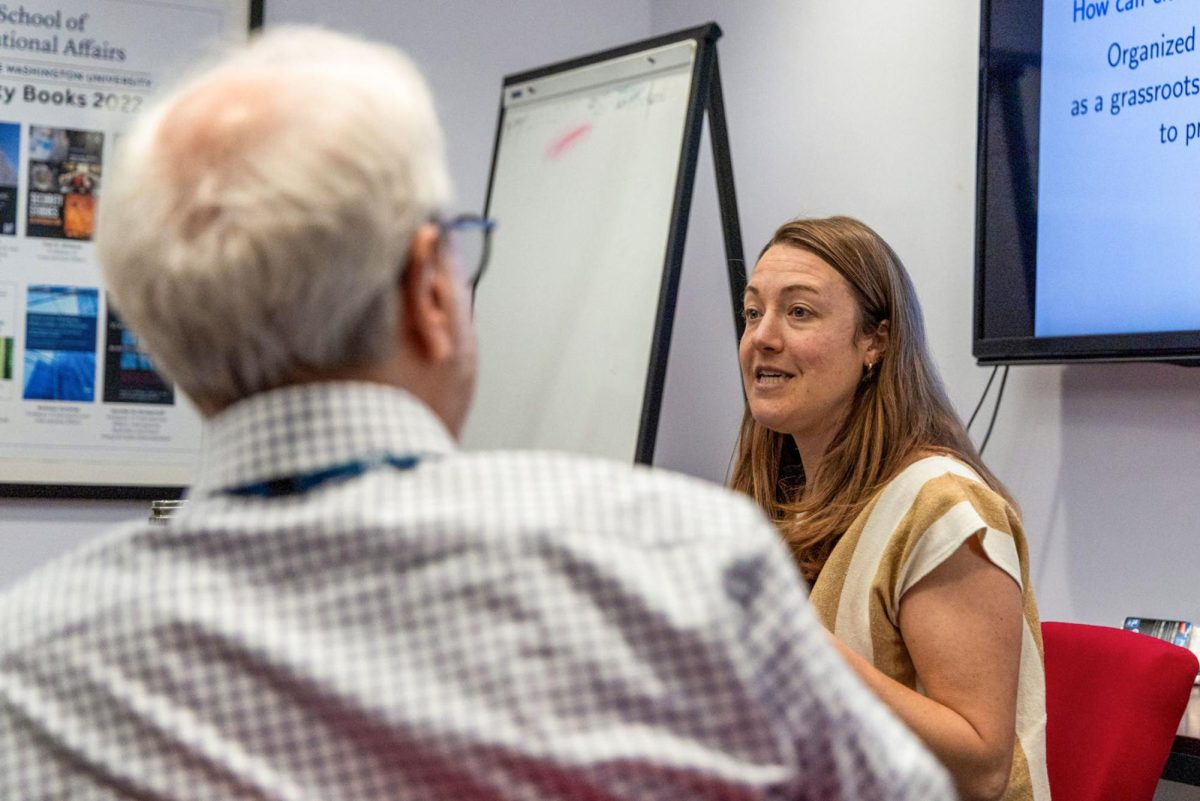The University touts the Elliott School of International Affairs for its building near the International Monetary Fund, the World Bank, the White House and the State Department.
But at the school’s celebration Friday, Dean Michael Brown urged students to appreciate not just its location but also the scholars and leaders that make it unique.
Here are four takeaways from the event’s speakers:
1. Progress happens, just not immediately
Brown said positive global change, such as the average life expectancy increasing from 31 to 70 years old over the last hundred years and waves of democratization, happens – but not on its own.
Brown told graduates that vision, character, courage and perseverance are the keys to progress. With more than 20,000 Elliott alumni working in about 100 countries, students should look forward to a career of visionary work, he said.
2. Be at the right place at the right time
Student speaker Max Sanders shared a former professor’s parting words: “You don’t need to be famous to leave your mark on history.”
Sanders said the Class of 2014 studied at the right time, with opportunities to study abroad during the Arab Spring and hear lectures by former Federal Reserve Chairman Ben Bernanke.

3. “You could find your spouse here.”
David Shambaugh, the director of the school’s China Policy Program, said international affairs degrees were just as useful today as they were in the 1970s when he earned a bachelor’s degree in East Asian studies from GW.
Shambaugh said his Elliott classmates boasted careers ranging from global investment banking to think-tank analysis to intelligence. One of those classmates, a Chinese art historian, married him more than 30 years ago.
“International Affairs degrees are practical and flexible,” Shambaugh said. “So look around because the next billionaire investment banker could be sitting in this room, or your future wife.”
4. Worry about what others think
Shambaugh said miscommunication and a “deficit of mutual trust” cause major wars today. He said graduates have the responsibility to engage and educate the “ignorant public” about different cultures.
Shambaugh reflected on his own graduation ceremony speaker in 1977, who was the ambassador to Bangladesh.
“He urged us to look beyond the East-West divide and pay attention to the developing world,” Shambough said. “The same is true today.”



